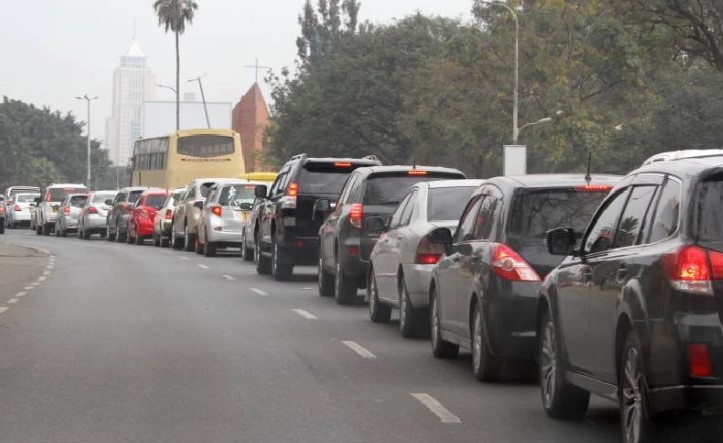NTSA reports drop in new vehicle registrations as sales decline

New vehicle registrations dropped from 13,499 units in July to just 9,888 units in August, a decline of nearly 27 per cent.
The National Transport and Safety Authority (NTSA) has reported a decline in the number of new vehicle registrations between July and August of this year, signalling the impact of Kenya's tough economic climate.
According to the Kenya National Bureau of Statistics (KNBS) report released on November 19, new vehicle registrations dropped from 13,499 units in July to just 9,888 units in August, a decline of nearly 27 per cent.
More To Read
- NTSA raises alarm as road deaths climb to 4,458 in 2025
- 62 PSV drivers suspended over safety violations, ordered to re-test by NTSA
- NTSA revives alcoblow, night patrols, mobile courts to curb road accidents during festive season
- Omtatah pushes Senate to act on road safety as deaths surge past 4,000
- Cab fares to rise as government revises digital taxi rates to cushion drivers
- Ngong Road users warned of daily diversions near Junction Mall until December 10
The statistics, based on the type and body of vehicles, show that saloon cars experienced the steepest drop in registration, followed by station wagons and pickups.
Other vehicle types, including minibuses, lorries, and buses, also saw a reduction in registrations during the same period.
However, there was a slight uptick in the registration of three-wheelers, vans, and wheeled tractors.
The figures point to a broader trend, with the first half of the year seeing relatively stronger vehicle registrations.
January recorded the highest number of new vehicles registered, with 19,711 units, followed by February at 18,509, March at 15,984, and July at 13,499.
Strained economy
The decline in August was part of a downward trend, as the country's economy has been increasingly strained.
In a similar trend, the number of newly registered motorcycles also saw a significant drop, from 6,060 units in July to just 4,292 in August.
Motorcycles, however, saw their peak registrations earlier in the year, with the highest numbers registered in January and February.
The lowest figures were recorded in April and August.
The decline in vehicle registrations is largely attributed to the rising cost of borrowing and stricter fiscal policies imposed by the government.
As interest rates on loans continue to climb, many Kenyans have found it more difficult to afford new vehicles.
The tightening of fiscal policies, including an increase in taxes and levies, has also played a role in reducing vehicle purchases.
One key factor contributing to the slowdown is the increase in import taxes for vehicles. In 2023, the East African Community (EAC) approved Kenya's request to raise the duty on imported motor vehicles from 25 per cent to 35 per cent under the common external tariff. This hike in taxes has made new vehicles significantly more expensive for many buyers.
In addition, the government's decision to raise the road maintenance and fuel levy from Sh18 to Sh25 per litre has further strained household budgets, with many fearing that the increase in fuel levies could lead to higher fuel prices across the country.
The higher costs of borrowing, coupled with these new fiscal measures, have dampened consumer spending, particularly on big-ticket items like cars.
Despite the drop in new vehicle registrations, used cars remain the most popular category for Kenyan buyers.
Used car sales continue to outpace new car sales, with an average of 130,000 used vehicles purchased annually at a total cost of Sh60 billion.
Top Stories Today













































